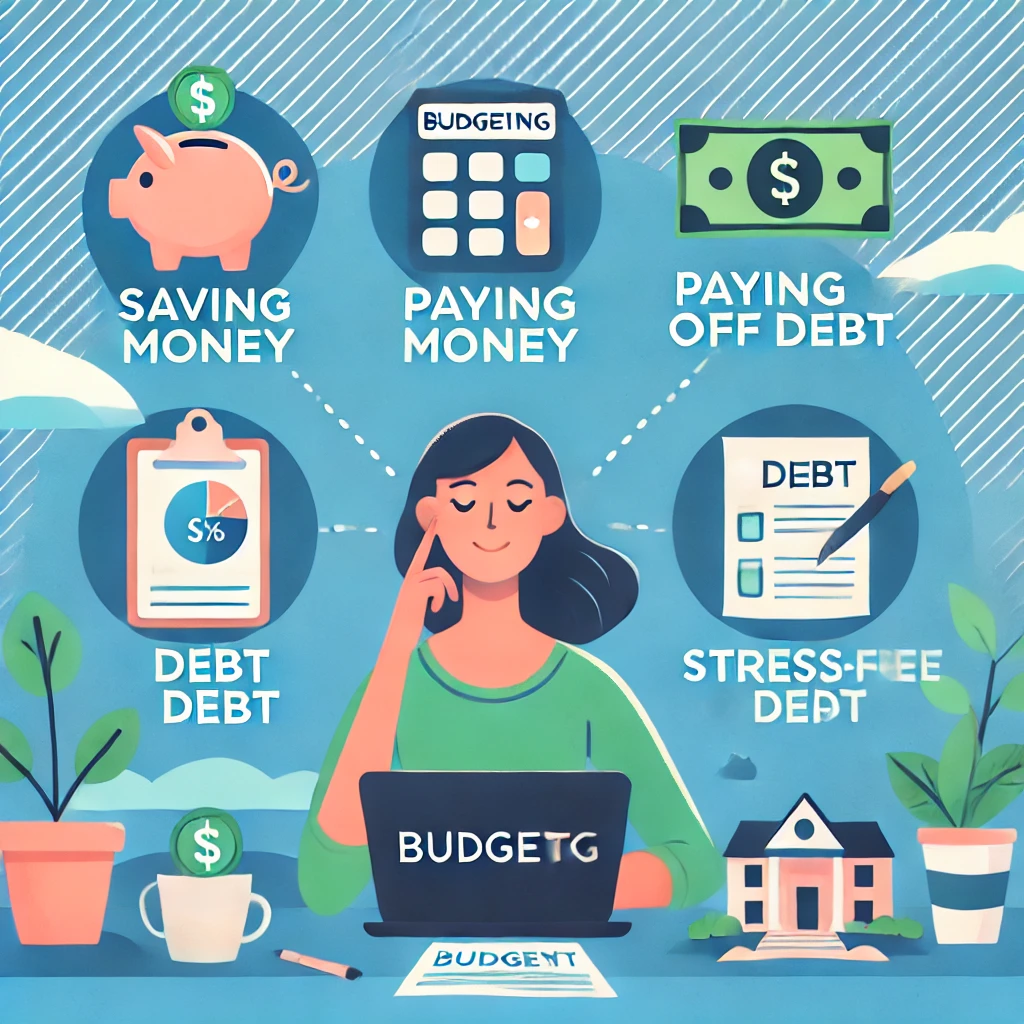Have you ever spent the end of the month and wondered, where the heck did my money go? You’re not alone! My name is Grace Williams and I wanted to share with you how you can gain control of your finances with budgeting methods.

In this video we are going into the basics of budgeting around what it is, why it matters and how to get started. We’ll explore three popular budgeting methods: They are the 50/30/20 rule, zero based budgeting and the envelope system. By the end of it you’ll know what works for you and be able to use it to build a better financial future. So how about we get started with that? But a budget, what exactly is that? It’s like a map that tells you where the income is coming in, and where the income is going each month. It’s like giving every dollar a job — now you’re thinking, “But why budget at all?” Well, there are a few key reasons:
Reach Your Financial Goals: A budget will allow you to plan ahead and save for a down payment, payoff debt, or take that dream vacation.
Reduce Stress: How can you know where your money is being spent and can take a huge weight off your shoulders? It will no longer worry about unexpected bills or overdraft fees.
Avoid Overspending: Without a plan, it’s very easy to overspend. A budget will keep you in bounds, and help you choose what you spend consciously.
Gain Financial Freedom: Budgeting puts you in the driver’s seat in your money and puts you on the road toward a more secure financial future.
(Choosing the Right Method):
Okay, we’ve covered three popular budgeting methods: all zero based, 50/30/20, and the envelope system. The question is: Which one is the best for you. Still, though, no answer is one size fits all. The right method for budgeting is the one that you can apply consistently. It should work with your life, your personality and your objectives.
You may find that the 50/30/20 rule seems simple to you. Or maybe you just rock with the rocking’ tracking that is inherent with zero based budgeting. If you prefer a more visual approach, you’ll love the envelope.
I mean, try different methods and just try it out and see if what’s right for you. Budgeting is not a goal but a process. You can grow what you have purposefully, inevitably.
This isn’t a one and done operation; adjusting and reworking your approach is fine for the circumstances and your needs. It’s time to begin budgeting today. It’s a powerful tool and I think with it you can become financially free and mentally free.

(Additional Tips):
I want to share some additional budgeting tips to end with before you finish out the month with success.
Track Your Income and Expenses: I believe this is the bedrock of a successful budget. Use a budgeting app, spreadsheet or notebook, track every penny that comes in and goes out. This will allow you to really know where you are spending your money and how you can cut back.
Review Your Budget Regularly: Your budget isn’t carved in stone. It’s a living document that will have to change to reflect your changes. Once you’ve reviewed your budget and made adjustments where necessary, review your budget monthly (or even weekly) to see whether you’re on track or if something needs to be changed.
Be Flexible and Adjust as Needed: Life is full of surprises. That’s ok. You will suddenly find yourself with unexpected expenses. It’s alright to be flexible with your budget and you’re allowed to make those adjustments along the way. The trick is to be mindful of your spending and about making conscious choices.
Celebrate Small Wins: Budgeting is not a sprint, it’s a journey. If you slip up, or don’t get where you want to be everywhere right away, don’t get discouraged.
But don’t get too excited with the small wins like paying off a credit card, or saving an extra $100. That will keep you motivated and going. You liked these budgeting tips? Press that subscribe button below then!
I will be uploading more videos on personal finance, money management and how to reach you financial goals.
I’m curious, which method from the two did you click with best? Do you or have you used the 50/30/20 rule, zero based budgeting, or the envelope system? Know it in the comments below?
Okay, we’ve covered three popular budgeting methods: all zero based, 50/30/20, and the envelope system. The question is: Which one is the best for you. Still, though, no answer is one size fits all. The right method for budgeting is the one that you can apply consistently. It should work with your life, your personality and your objectives.
You may find that the 50/30/20 rule seems simple to you. Or maybe you just rock with the rockin’ tracking that is inherent with zero based budgeting. If you prefer a more visual approach, you’ll love the envelope.
I mean, try different methods and just try it out and see if what’s right for you. Budgeting is not a goal but a process. You can grow what you have purposefully, inevitably.

This isn’t a one and done operation; adjusting and reworking your approach is fine for the circumstances and your needs. It’s time to begin budgeting today. It’s a powerful tool and I think with it you can become financially free and mentally free.
